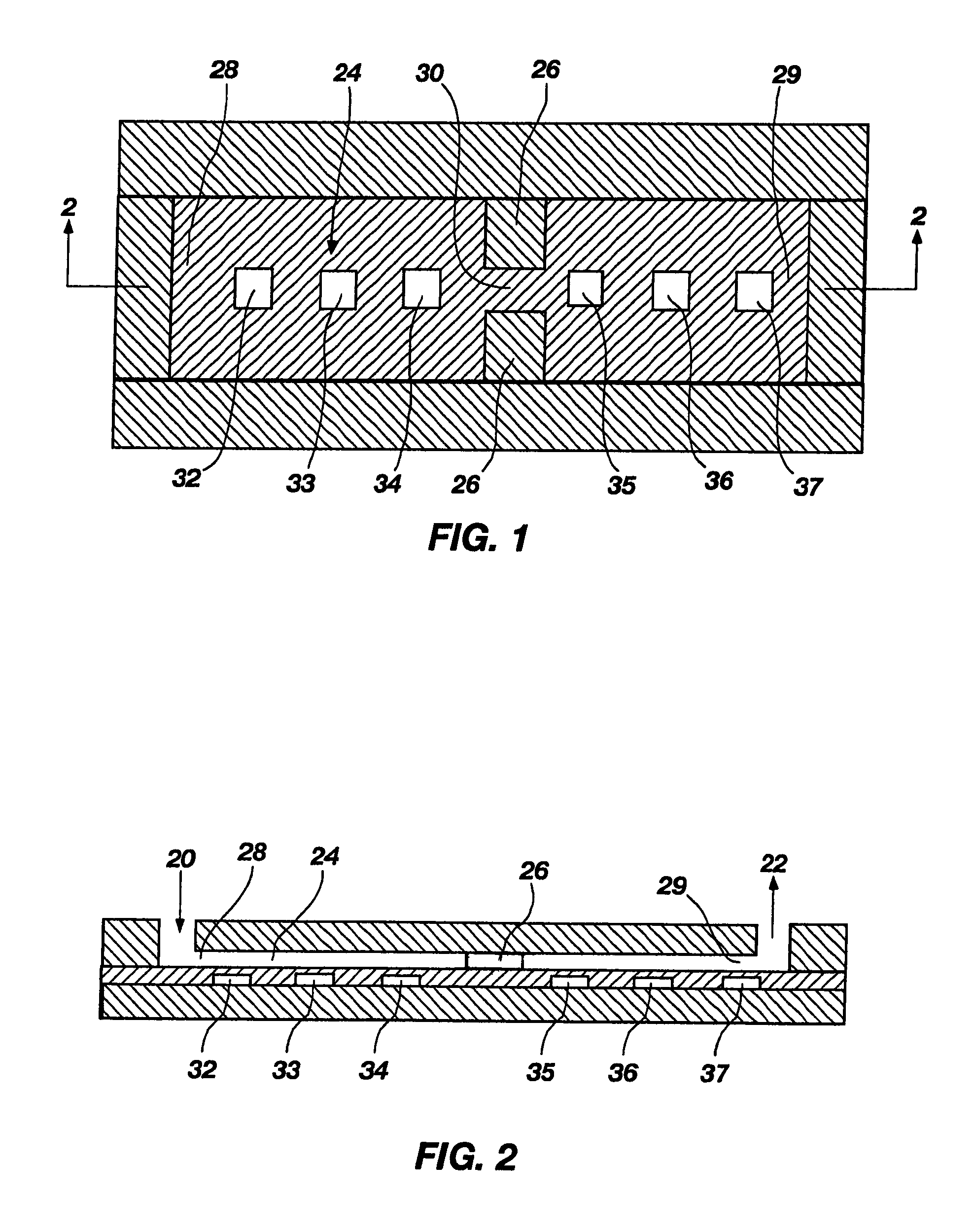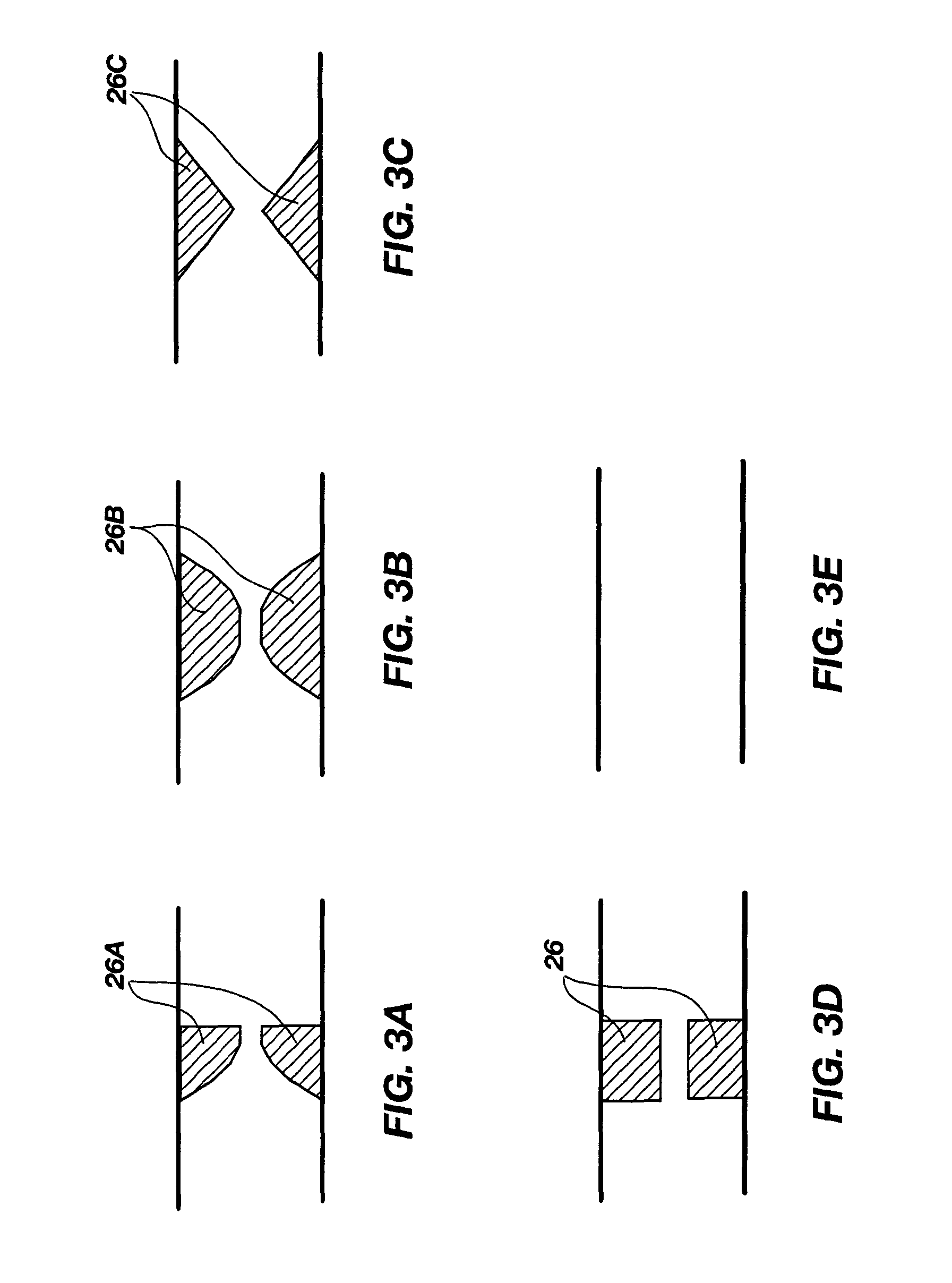Micro rheometer for measuring flow viscosity and elasticity for micron sample volumes
a micro-rheometer and sample volume technology, applied in the direction of direct flow property measurement, material thermal analysis, instruments, etc., can solve the problems of inability to measure true viscosity with such ill-defined test conditions, inability to know or calculate the shear rate, and inability to measure the viscosity of micron sample volume, etc., to achieve extremely cost-effective results and small sample size
- Summary
- Abstract
- Description
- Claims
- Application Information
AI Technical Summary
Benefits of technology
Problems solved by technology
Method used
Image
Examples
Embodiment Construction
[0031]An embodiment of a micro rheometer-on-a-chip is shown in FIGS. 1 and 2 and includes a flow entrance or inlet 20, a flow exit or outlet 22, and a flow channel 24. The flow channel 24 has a predetermined channel depth (gap) in the order of micrometers along the channel and may have protrusions 26 in the intermediate portion, here shown as approximately the middle, of the length of the flow channel 24 to induce a contraction of flow of material flowing in the flow channel 24. The width of the flow channel is preferably significantly larger than the depth of the channel so that the flow through the channel can be considered to be a one-dimensional problem. The ratio of the width to the depth is preferably larger than ten. The preferred channel depth is in the order of micron. The preferred length of the channel is at least one hundred micrometers excluding the entrance and exit zones 28 and 29, respectively. In order to measure the true viscosity, the test liquid is pumped to flow...
PUM
| Property | Measurement | Unit |
|---|---|---|
| length | aaaaa | aaaaa |
| length | aaaaa | aaaaa |
| length | aaaaa | aaaaa |
Abstract
Description
Claims
Application Information
 Login to View More
Login to View More - R&D
- Intellectual Property
- Life Sciences
- Materials
- Tech Scout
- Unparalleled Data Quality
- Higher Quality Content
- 60% Fewer Hallucinations
Browse by: Latest US Patents, China's latest patents, Technical Efficacy Thesaurus, Application Domain, Technology Topic, Popular Technical Reports.
© 2025 PatSnap. All rights reserved.Legal|Privacy policy|Modern Slavery Act Transparency Statement|Sitemap|About US| Contact US: help@patsnap.com



